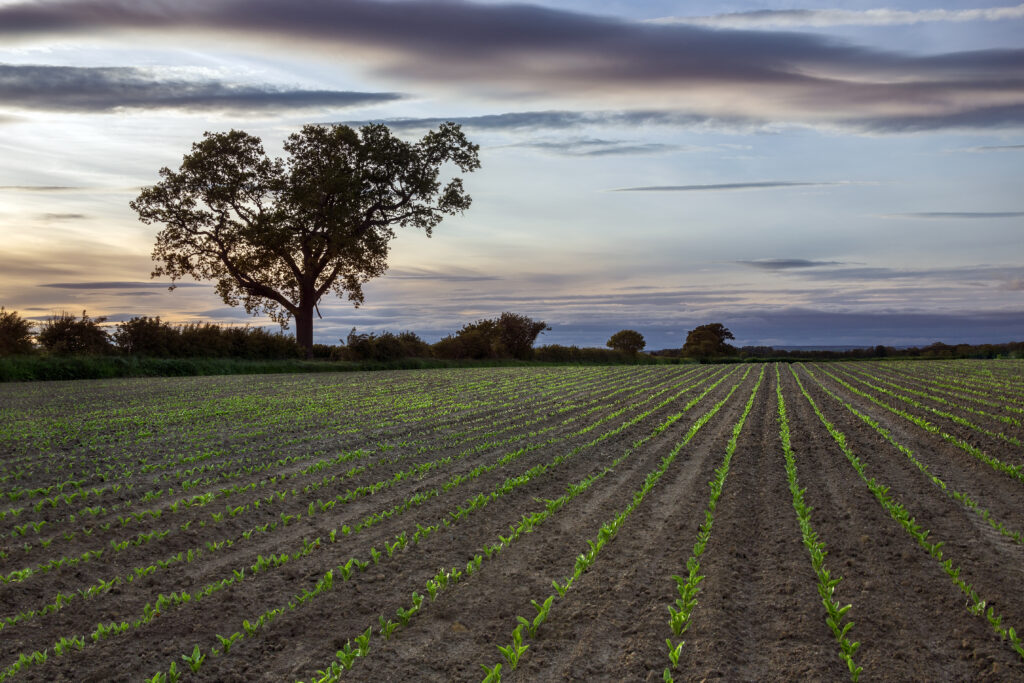This month we introduce a new series on Jesus’ parables. Jesus often described his kingdom using parables. For each of the next seven issues, we will discuss a different parable. We’ll explore questions like: What does this parable reveal about the kingdom? What does it tell us about the role of the Church in the kingdom?
 By Bill Hall, National Director of Canada
By Bill Hall, National Director of Canada
Winnipeg, SK, Canada
Not too many of us in the Western world live in an agrarian society. For instance, although I’m surrounded by farms in the Canadian province of Saskatchewan, I am an urban dweller. As a result, we may have some issues trying to understand various parables that have first-century agricultural overtones.

Looking at this parable found in Matthew 13:3–28, Mark 4:1–19, and Luke 8:4–15, we see Jesus’ conversation with the crowd on the lakeside is divided into three parts:
-
- Jesus shares the parable.
- Jesus explains why he speaks in parables.
- Jesus then explains the parable to his disciples.
In his story he speaks of a sower casting seeds that fell on inhospitable and hospitable ground. Some of the seeds fell on the path and were eaten by birds; some fell on rocky ground and, while sprouting, couldn’t survive exposure to the elements. Other seedlings were choked out by weeds, and finally some seed fell on good soil and flourished into a bountiful harvest.
Reflecting on his words, even with my limited agricultural knowledge, it is obvious that what Jesus is describing in this parable is not how to be a successful farmer. A successful farmer would value every seed and give it the best opportunity to flourish. To do the opposite would be fool-hardy and a waste of valuable seed.
Instead, Jesus is describing something about the kingdom that is ushered into the world with his coming.
N.T. Wright explains that this message, with the interpretation given to the disciples (Matthew 13:1–9, 18–23), had a very prophetic meaning regarding Jesus’ ministry:
The Sower, in other words is not simply an earthly story with a heavenly meaning, a moral lesson about listening carefully. … It is full of the music of the Kingdom, the new song of God after the long silence of exile. It encapsulated Jesus’ challenge to his contemporaries to be Israel, because God was at last ‘sowing’ them again; and the warning that if this final word was not heeded the alternative would be catastrophe. [1]
Certainly, the Gospels give many examples of how Jesus’ words and actions were perceived differently by various individuals and groups. Some celebrated his coming, while to others, such as the religious leaders and the empire that was Rome, he was a threat to the status quo.
In his interpretation to the disciples (after he explains the reason for parables), he is not actually talking about seeds as much as the “type” of soil on which the seeds fell (Matthew 13:18-23).
As people who are reading these words over the shoulder of first-century disciples and their contemporary situation, modern Christians can learn some important lessons.
First, as we reach out into our neighbourhoods with the message of the kingdom, Jesus’ words help to explain why not everyone we develop a relationship with will respond to the kingdom message. The parable also helps to explain that even those who become disciples can get distracted and move on sometimes.
This can be very disconcerting. However, I find in Jesus’ words something very encouraging. The fact is, long before we encounter people in our neighbourhood, the Spirit is already preparing some to be the soil ready to accept the gospel. Could we be that person, in partnership with the Spirit, who plants the seed resulting in them becoming a part of that bigger harvest?
Secondly, I find encouragement from the reflections of David Lose. He calls God the “reckless sower,” because from our perspective God is a farmer who throws seed with abandon where three-quarters of the seed appears to be simply wasted. He adds:
Why does this shift of focus matter? Because as we give our attention to the crazy abandon of this ridiculously wasteful farmer, we get a hint about the character of the kingdom Jesus preaches. It is a place where God’s love and God’s word are scattered with equal abandon, with no regard for how any of it will be received. It’s as if God just can’t help but share love and grace and mercy and will do so recklessly, even wastefully, because God alone knows that grace is never exhausted, and love never wasted. [2]
Let us all participate with God as “sowers” in our own right to share his love, grace, and mercy in our neighbourhoods. More than ever our neighbours need to feel the touch of God’s kingdom in their lives!
[1] (page 86, Twelve Months of Sundays: Biblical Meditations on the Christian Years A, B & C, Morehouse Publishing 2012)
[2] (https://www.davidlose.net/2014/08/matthew-13-1-9)



Please note that comments are moderated. Your comment will not appear until it is reviewed.